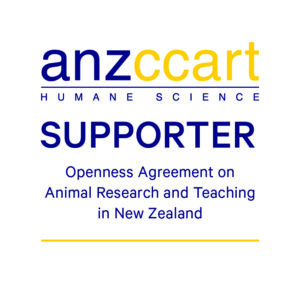Student Research Grant applications are currently open!
Applications for the NZMSS Student Research Grant are now open and will close at the end of January 2026 (Saturday 31 January).
Applications for the NZMSS Student Research Grant are now open and will close at the end of January 2026 (Saturday 31 January).
The NZMSS Student Research Grant was established by society members during the 2006 Annual General Meeting.
The grant is intended to help graduate researchers take their work further than academic funding allows and to provide exposure for their research. Applications from a broad range of marine disciplines are encouraged.
Grants are awarded as funds allow.
Each application should be submitted as two typed documents (in Microsoft Word .doc or Adobe .pdf format) and emailed to secretary@nzmss.org.
This document must be anonymous and must not include any information that identifies the applicant or their institution
Applicants must be enrolled for a postgraduate degree at a New Zealand institution.
Applicants must be a current member of NZMSS
NZMSS is a signatory to the ANZCCART (Australian and New Zealand Council for the Care of Animals in Research and Teaching) Openness Agreement on Animal Research and Teaching in New Zealand. The objective of this Agreement is to ensure that the public are well informed about what animal research involves, the role it plays in the overall process of scientific discovery, how such research is regulated in New Zealand, and what researchers and animal care staff do to promote welfare, reduce animal usage and minimise suffering and harm to the animals.
If animals are used in your research, please provide information with your application on the following:

Ph.D. candidate, Victoria University of Wellington – “Rimurimu in hot water: Understanding the cellular mechanisms behind thermal tolerance in giant kelp (Macrocystis pyrifera)”
Ph.D. candidate, University of Otago – “Community-led research and control of the invasive seaweed, Undaria pinnatifida, in southern New Zealand Customary Protected Areas (CPAs)”
Ph.D candidate, University of Auckland – “Weaving together the threads of ecological restoration and marine ecotourism to implement the environmental agenda”
Ph.D candidate, University of Otago – “Cumulative Effects of Microplastics and Nitrogen Loading on Microphytobenthos and Macomona Lilianna“
Ph.D. candidate, University of Auckland – “Toxicity of microplastics and dibutyl phthalate on the green-lipped mussel, Perna canaliculus, after individual and combined exposure”
Ph.D. candidate, University of Waikato – “Drivers of long-term carbon burial in New Zealand estuaries”
Ph.D. candidate, University of Otago – “Macroalgal microbiomes: do host associated microbiomes facilitate environmental tolerances”
Ph.D. candidate, University of Waikato – “The role of mangrove soil microbial communities in regulating ecosystem functions in response to nutrient enrichment”
Ph.D. candidate, University of Auckland – “Are Current Perna canaliculus Restoration Projects ‘Successful’? Utilizing Reference Systems to Define Success”
Ph.D. candidate, University of Waikato – “Gas bubble disease and rickettsiosis in New Zealand surf clams”
Ph.D. Candidate, Massey University – “Marine debris: An underappreciated habitat for juvenile fishes in New Zealand’s pelagic”
Ph.D. Candidate, Auckland University of Technology – “Development of a novel metabolomics approach to study summer mortalities in Pacific oysters (Crassostrea gigas)”
Ph.D. Candidate, Victoria University of Wellington – “Unraveling the Biological Mechanism for Stunted Paua Stocks”
Ph.D. Candidate, University of Auckland – “A novel system for measuring the photosynthetic rates of kelp and its application to studying current and future stressors on kelp forest ecosystems”
Ph.D. Candidate, University of Otago – “Population biology and larval ecology of the sea urchin Centrostephanus rodgersii (Agassiz 1863) in New Zealand under the influence of Global Climate Change and a comparison with the Australian population”